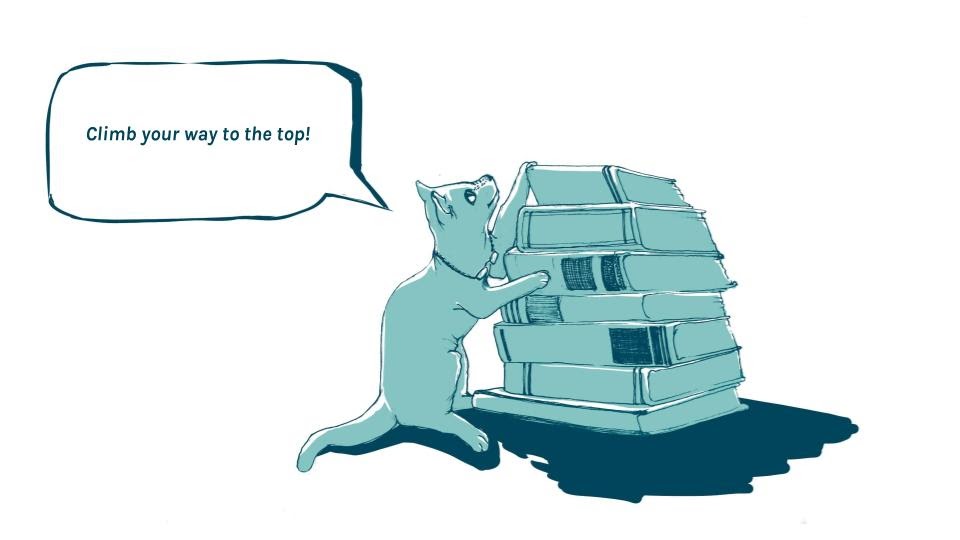Written by Lincoln Anderson
October 7th, 2020
How to Become a Copywriter for the Entertainment Industry

The plane touches down on the runway, slicing the heat waves radiating through the dry air. You step out of the airport and feel the cool, ocean breeze on your face. The weather is perfect, just like they said it would be.
You’re finally here—the shiny face of Hollywood’s newest arrival. You wear a beaming smile as you walk to the Uber area of LAX (woah, has that made things more efficient). You’re here, and you’re ready to become the next big thing.
While your end goal is obvious: a star on the walk of fame, you know it’s not going to be a short journey. The road to reaching this dream will be paved with hard work, long hours, and—for many—a lot of writing.
Copywriting, Really?
Whether your dream is to be Tinsel-Town’s most successful copywriter, or you’re simply looking for a job that will help you break into the industry—copywriting is an important part of the entertainment world.

I know, it may sound surprising, but hear me out. Copywriting has a ton of benefits for any Hollywood professional with a knack for the written word. Becoming a copywriter for the entertainment industry can:
- Bulk up your resume – Copywriting skills look great on a resume, and may open doors for other writing opportunities. (Did somebody say “next big screenwriter”?)
- Sharpens your skills – Most writers would agree that the work never ends. A copywriting job is a great way to practice your writing skills, develop a style, and get better at creating content more quickly.
- Pays the bills – Let’s face it, being an artist is hard. Scoring a secure copywriting gig is a great way to stay afloat financially while you wait for your first big break as a Hollywood big-shot.
OK, You’ve Sold Me. Where Do I Start?
Now that you’re convinced, the hard part is over (artists can be… stubborn). Let’s go back to that picture perfect scene where you’re stepping off the plane and starting your new life in Hollywood—but this time, you’re looking for a position as a copywriter.
Becoming a copywriter, especially in the entertainment industry, may take a little finessing. There are a few ways to approach finding a copywriting job:
- Work as a freelancer – This is probably the best option for most rookie copywriters. Freelancing is a great way to peddle your skills and get your name out there, without being tied down to one position. Look for listings online, and try a freelance-specific job posting site if you really want to pursue this option.
- Look for copywriting in job descriptions – Some full time positions may not have “copywriter” directly in the title. This is because—in all honesty—most starting positions in this industry will have you juggling a ton of different tasks. If you’re truly interested in becoming an entertainment copywriter, check the responsibilities section for “copywriting” on every job listing you see.
- Enter a contest – Many new writers get discovered through writing competitions, and copywriters are no different! Try searching for the latest copywriting contest and submit your best work. Competitions can lead to representation, management, and even full-time employment.
- Put yourself out there – Another way to get discovered as a copywriter is by creating a digital portfolio. If you haven’t been hired yet, take time to start a blog or write some articles on your own. This increases the chances of your writing being seen by a potential employer.
But How Do I Write Good Entertainment Copy?
Isn’t that the million dollar question?
To break down the process of writing good copy for the entertainment industry, we’ll take it step by step. Since we know you’re a sucker for the silver screen, each step is aptly named with a position you’re probably familiar with:
Production Assistant
Think of the basic rules of copywriting like working as a production assistant.
You’re just starting out. You got your first gig doing grunt work on a big-time set, and you’re willing to do whatever it takes to impress—but you want to do it right. Afterall, what’s a P.A. good for if they can’t handle the basics? (Too harsh? No, this is Hollywood).
This is essentially the first step to copywriting. You may know what P.A. grunt work entails: coffee runs, driving around town, being generally mistreated. What you may not know is that copywriting has grunt work too.
To write good copy for the entertainment industry, you’ll want to pay attention to a few key elements:
- Grammar – This should go without saying, but make sure to proofread your work. You never know who may be reading your article. If your copy finds its way to a famous director’s desk, the last thing you want is a typo blacklisting you for all eternity (too dramatic? Again, no! This is Hollywood).
- SEO – In the digital age, keywords are everything. It’s important to utilize Search Engine Optimization the right way. Using just the right amount of google’s favorite phrases will help you boost your search rankings and increase content visibility.
- Use names and titles – For the entertainment industry, you’ll want to utilize big names as much as possible. If you’re writing an article about a movie with an A-list star, don’t forget to put their name in the copy! Even if you’re critiquing the movie, don’t leave out the flashy bits that will draw readers to your article. You know what they say, all press is good press.
Extra
You’ve done what it takes to catch the casting director’s attention, and now they’re letting you work as an extra! So what if your only job is pretending to eat soup in the background of a restaurant scene, it’s still something, right?
Being an extra is all about visuals, and so is the next step of writing good entertainment copy. This industry values good looks (as you can tell from the Botox billboards on every highway in Los Angeles). If you’re writing for the entertainment world, the last thing you want is copy that’s hard to look at.
This is the time to take a good look at your writing. Pay attention to white space—readers want short bursts of information rather than a long, endless paragraph. Hollywood stars don’t have time to read an entire manifesto about why you gave their movie a 7/10, so keep it punchy and cut to the chase. If you’re summarizing a movie or television show, make sure your paragraphs clearly define the beginning, middle, and end.
Headings should look nice and follow a clear theme. If your aesthetic is all over the place, there’s less of a chance your words will be read.
If your words are read, make sure they have interesting diction, an appropriate mix of smart and understandable language, and proper punctuation.
And P.S. cool it with the exclamation points, being that excited all the time gives you wrinkles (your move, Botox billboard).
Director
Congratulations, they’re letting you direct something! Yes, it’s a 30-second commercial airing before a 12-year old’s YouTube video—but who cares? That 12-year old has a lot of subscribers, and this could be your big break.
The entertainment industry values quality writing (well, sometimes). This step is where you can add substance to your copywriting. Just like a director bringing a script to life, you want to give the subject of your copy some meaning.
Think of this process like crafting a plot. You want your article to have all the required information, but it’s also important that the writing makes a point. Take everything you’ve written and try to craft a through-line. Overarching themes are a director’s speciality, so don’t be afraid to do this within the copy. (Hollywood loves a good story, afterall).
Use metaphors, tie things together, and have a conclusion that satisfies your reader. You don’t want readers regretting the fact that they clicked on your article.
Executive Producer
Let’s jump ahead a few years. You’ve had a long, fruitful career in the entertainment industry. Hard work has gotten you to the important position you’re in today, and now people give you the creative license to be yourself. Using the skills you’ve gathered during your time in the biz’, you now take other people’s projects and make them—well—better.
This is the final step in good entertainment copywriting—get creative. You’re good enough now that you can take some risks, without fear of getting fired. Think like a producer and find ways to really sell your writing.
- Enhance your articles with jokes.
- Use an interesting narrative voice.
- Weave the information into a complicated story that makes it more fun.
The bottom line is: write something you’re proud of! Once you’ve mastered the basics of writing copy, you can finally begin to add the creative flare your writing will need to make it in this business.
Lastly, if you’re writing about the entertainment industry, try to match the level of creativity you’re writing about. If the article is about something funny, add jokes. If you have a more serious subject, don’t be afraid to add some drama to your writing. Don’t discuss entertainment in a non-entertaining way—that’s just a recipe for failure.
Copycat Says: Good Luck!
Starting a career in the entertainment industry can be intimidating. There’s always going to be variables you can’t control, connections you don’t have, and money you wish you were making.
That being said, the most important step to becoming a copywriter in this industry is a willingness to work hard. Building a career in Hollywood won’t be easy, but if you’re prepared to make the effort and write the pages, you’re going to be just fine.
Sources:
Writer Access. Writing for Entertainment.
https://www.writeraccess.com/blog/writing-for-entertainment/
WalkerCopywriting. An Entertainment Copywriter on Entertainment Marketing.
http://walkercopywriting.com/entertainment-copywriter-talks-entertainment-marketing/
Battle Royale with Cheese. How the Movie Industry Uses SEO.
https://battleroyalewithcheese.com/2019/08/how-the-movie-industry-uses-seo/